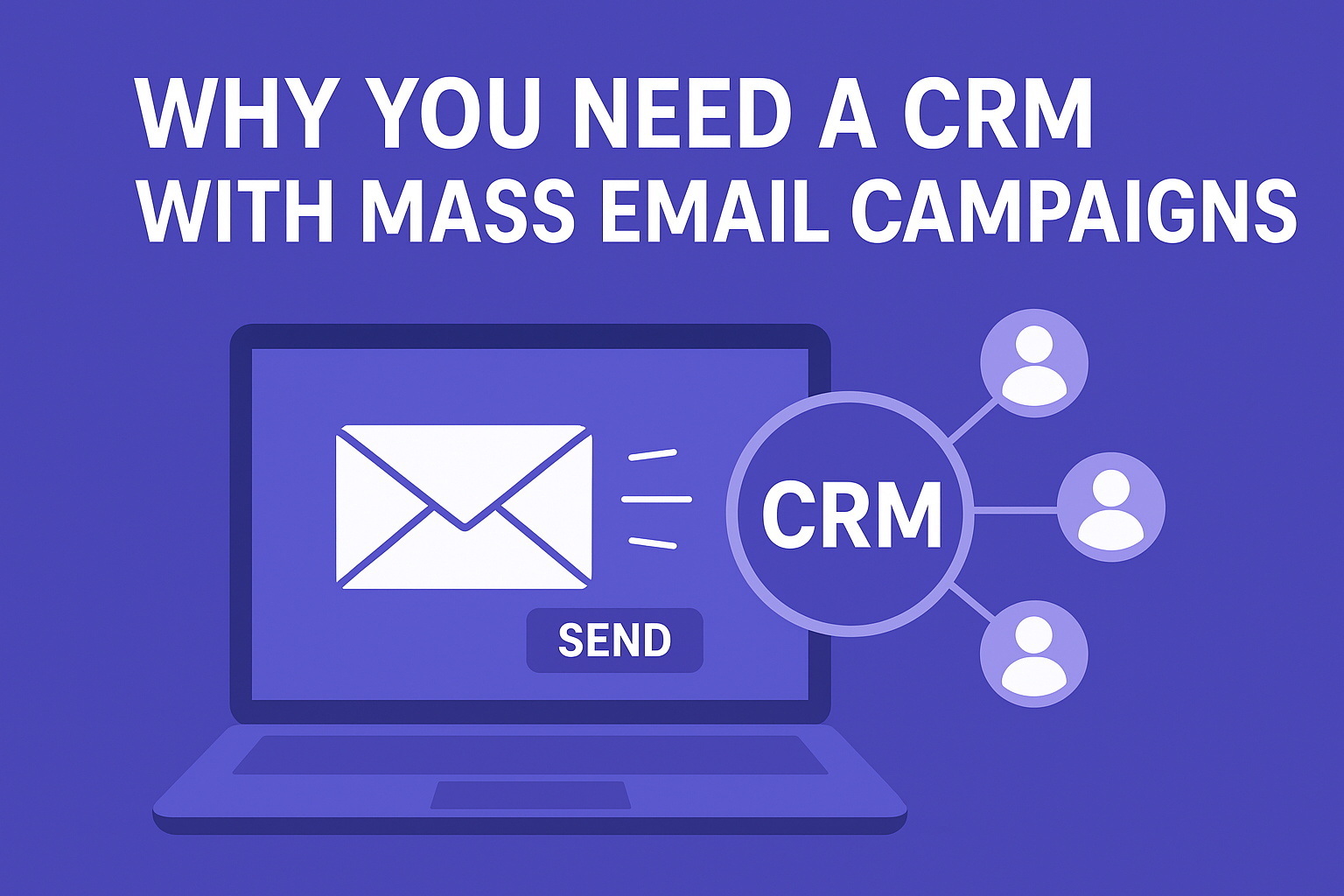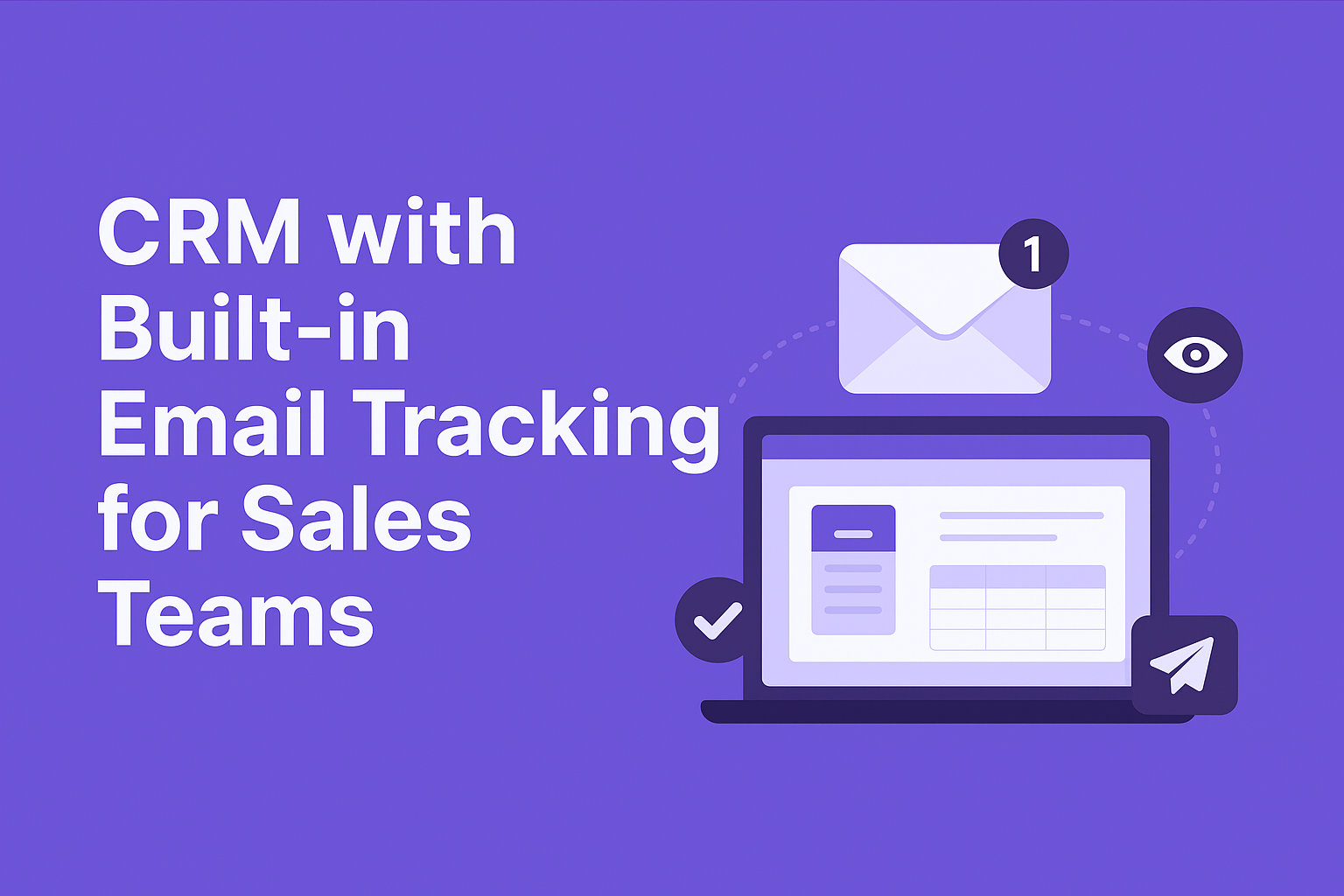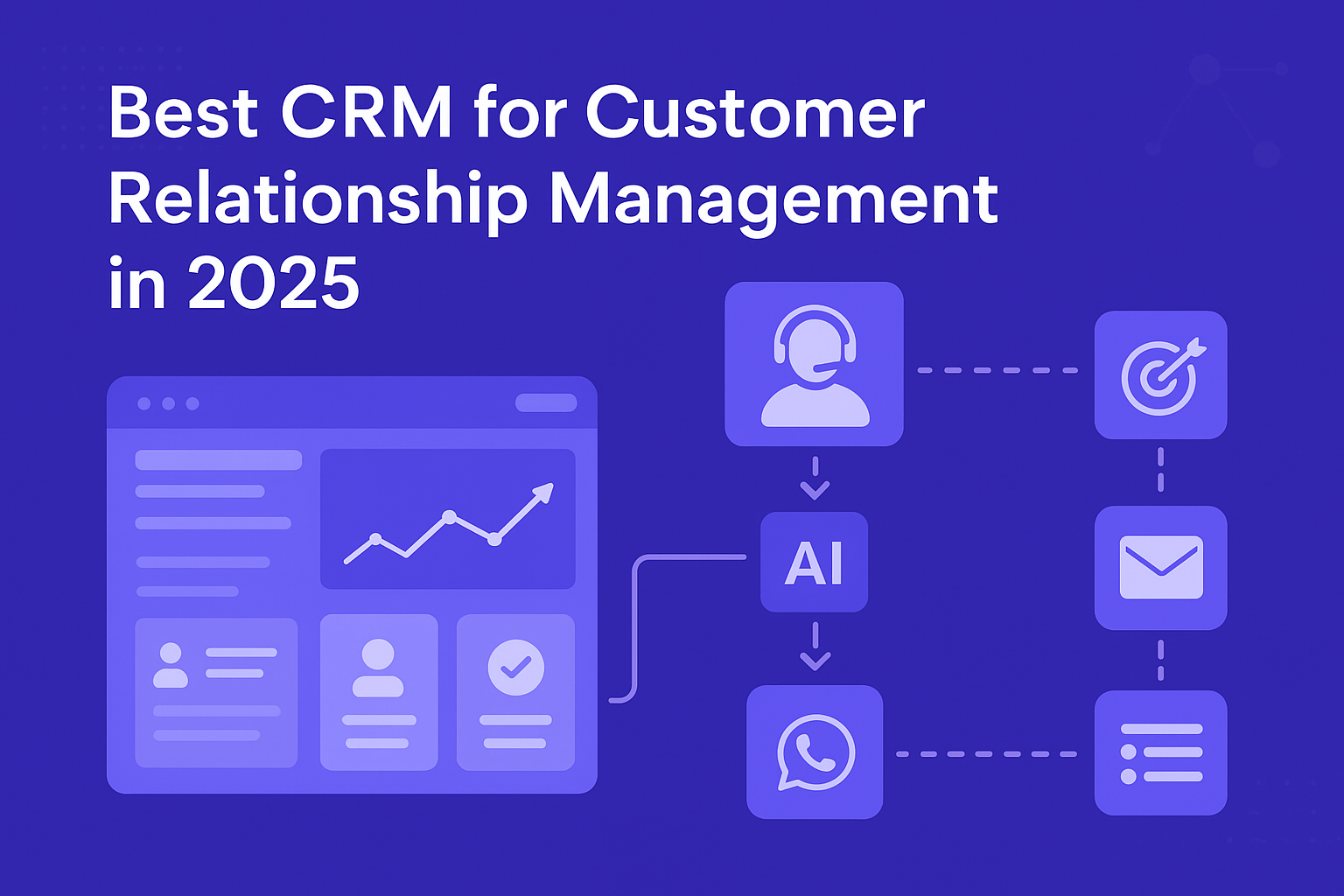In today’s competitive sales landscape, email is still king. But sending scattered emails from your inbox won’t cut it anymore. If you’re serious about scaling your pipeline, building relationships, and closing more deals, you need a CRM with built-in mass email campaigns.
Why? Because sales is no longer about sending one message at a time it’s about personalization at scale, tracking engagement, and knowing which prospects are ready to buy. And the only way to achieve that is when your CRM and email campaigns live in one powerful system.
In this post, we’ll break down exactly why having a CRM with mass email campaign capabilities is a game-changer for your sales team—and how it can directly impact your revenue.
1. Centralize Your Sales and Marketing Efforts
Traditional email marketing tools work in silos. Your CRM has one set of data, while your email platform has another. That means you’re constantly exporting, importing, or guessing who engaged with what.
With a CRM that includes mass email campaigns, everything lives in one place:
- Contacts, deals, and conversations are all synced.
- Every email interaction is tied to the right lead or account.
- Sales reps don’t waste time switching between tools.
Instead of scattered data, you get a 360° view of every customer journey, which makes your team more efficient and your outreach far more effective.
2. Scale Personalization Without Losing the Human Touch
Mass emails don’t have to feel “mass.” A good CRM with bulk email features allows you to:
- Insert personalization tokens (name, company, industry).
- Segment contacts by pipeline stage, lead source, or behavior.
- Send hyper-targeted campaigns that actually resonate.
For example, instead of blasting 1,000 generic emails, you can send 5 different personalized campaigns—one for leads who downloaded your eBook, another for those who booked a demo, and another for cold prospects.
That level of personalization increases open rates, click-throughs, and conversions without requiring extra manual effort.
Start your free trial of Pipermind CRM today
3. Automate Follow-Ups (and Never Miss an Opportunity)
Research shows that 80% of sales require 5+ follow-ups, yet most reps stop after one or two attempts. Why? Because manual follow-ups are time-consuming.
With CRM-powered mass email campaigns, you can:
- Automate sequences that trigger based on user behavior.
- Schedule drip campaigns that nurture leads over weeks.
- Track replies and remove engaged contacts from sequences automatically.
This ensures no lead falls through the cracks while freeing up your sales team to focus on high-value conversations.
4. Get Deep Insights with Email Tracking
If you’re sending emails without tracking, you’re operating blind. You don’t know who opened, who clicked, or who ignored your message.
But when your CRM handles mass emails, you gain real-time visibility into engagement:
- See which contacts opened your email (and how many times).
- Track link clicks to identify hot leads.
- Measure campaign performance with dashboards and reports.
This data helps you prioritize leads and tailor follow-ups to maximize your close rate.
5. Save Costs and Boost ROI
Using separate tools for CRM and email campaigns is expensive. You’re paying for two platforms, plus wasting time (which is money) on integration headaches.
With an all-in-one CRM, you:
- Eliminate extra software costs.
- Reduce training and onboarding friction.
- Increase team productivity with a single platform.
The result? A higher return on investment and faster time to revenue.
6. Align Sales and Marketing
When sales and marketing teams work in silos, the buyer experience suffers. Marketing sends leads that sales can’t qualify. Sales loses track of prospects nurtured by marketing.
A CRM with mass email campaigns bridges that gap. Both teams work off the same data, see the same email activity, and collaborate to move leads through the funnel.
That alignment creates consistent messaging, smoother handoffs, and more closed deals.
7. Drive Predictable Revenue Growth
At the end of the day, tools only matter if they help you grow revenue. A CRM that combines pipeline management with bulk email campaigns allows you to:
- Fill your funnel with consistent outreach.
- Nurture prospects until they’re ready to buy.
- Identify the hottest leads and focus reps’ time.
- Repeat the process with measurable results.
This makes your sales engine predictable, scalable, and revenue-driven.
Why Choose Pipermind CRM for Mass Email Campaigns?
Not all CRMs are built equally. Many require third-party integrations, and some limit email sending. That’s where Pipermind CRM stands out.
With Pipermind, you can:
- Send bulk email campaigns directly from your CRM.
- Track every open, click, and reply in real time.
- Segment audiences with smart filters.
- Automate follow-ups with sequences.
- Manage your pipeline and email campaigns in one place.
This means fewer tools, less complexity, and faster results for your sales team.
Final Thoughts
If you’re still managing email campaigns outside your CRM, you’re missing out on efficiency, insights, and revenue opportunities. A CRM with mass email campaigns isn’t just a nice-to-have—it’s a must-have for modern sales teams.
The faster you centralize your sales and email outreach, the faster you’ll close deals.






